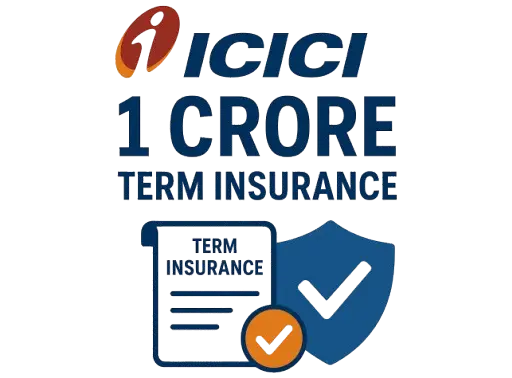- Importance of CSR
- How is it calculated?
- Impact on Policyholders

I am a passionate content writer with over three years of experience in the insurance domain. An avid learner, I always tries stays ahead of the industry's trends, ensuring my writing remains fresh and includes the latest insurance shifts. Through my work, I strive to engage with targeted insurance readers.
Reviewed By:

Sharan Gurve has spent over 9 years in the insurance and finance industries to gather end-to-end knowledge in health and term insurance. His in-house skill development programs and interactive workshops have worked wonders in our B2C domain.
Updated on Jul 02, 2025 7 min read
Claim Settlement Ratio of Term Insurance Providers
The primary purpose of buying a term insurance policy is to protect the life of dependent family members from potentially devastating financial losses that may occur if something happens to the policyholder. But what if your claim settlement is delayed? That would be another problem for your loved ones in tough times
The claim settlement ratios showcase the credibility of your insurer for settled claims. The claim settlement ratio is a percentage of claims throughout the financial year that the insurer has settled smoothly. Indeed, while choosing a reliable insurance provider or renewing your existing one, along with checking the premium amount, you must check the insurer’s claim settlement ratio.
What is the Claim Settlement Ratio?
The claim settlement ratio is the total number of claims settled versus the total number of claims risen during the same financial year. The claim settlement ratio or (CSR) is applicable for all categories of insurance companies such as health, term, life, motor and much more.
The Insurance Regulatory and Development Authority of India (IRDAI) has set strict guidelines for insurance companies to release CSR data at the end of every financial year.
For instance, Assumed that the insurance company got 1000 death claims throughout the April 1, 2021, and March 31, 2022 financial year. The insurer has settled 940 claims successfully, 50 were rejected, and 10 are on hold.
Hence, the claim settlement ratio will be 940/1000=94%
The claim rejection ratio=50/1000=5%
The claim pending ratio=10/1000=1%
In the above case study, the insurance company excludes or does not accept the remaining claims of 5 percent. However, the insurer may sometimes reject a claim for several reasons, such as fraud, impersonation, misrepresentation, etc. Undoubtedly, an insurer’s claim settlement ratio helps you determine the insurance provider’s credibility or stability.
How is a claim settlement ratio calculated?
Policyholders can calculate the insurer company’s claim settlement ratio hassle-free with the given formula-
Claim Settlement Ratio (CSR)=(Total number of claims settled in a year/ Total number of claims in a year) X 100
For instance, Company X settled 9,000 out of the 10,000 claims for 2021-2022. Its CSR will, thus, be 90% (9,000/10,000*100).
Types of Claims Counted to Calculate the CSR
For calculating the CSR of the insurance companies, IRDAI use these two categories of claim settled:
Maturity claims
The total number of claims made for all the life insurance policies after their maturity are known as maturity claims. Under the maturity claim a specific amount will be paid to the policyholder for the survival of the whole policy term. The maturity claims on term insurance are tax-free under section 10(10)D of the Income Tax Act.Death claims
The death benefit is the sum assured amount that will be payable to the nominee of the policy in either lump sum or as regular income, in case of the death of the policyholder during the policy term. The amount of death benefit is also tax exempted under section 10(10)D of the Income Tax Act of 1961.
IRDAI Annual Report 2021-22: CSR of Term Insurance Companies
We’ve listed the claim settlement ratio data in the IRDAI Annual Report for the 2021-22 financial year. However, CSR is the percentage of claims an insurer settles annually compared to the total number of claims received from nominees. Please note that all CSR-related details in this article are IRDAI-verified.
| Insurance Providers | Claim Settlement Ratio (CSR) |
| ICICI Prudential Life Insurance | 97.82% |
| HDFC Life Insurance | 98.66% |
| PNB Metlife India Insurance | 97.33% |
| TATA AIA Life Insurance | 98.53% |
| Bajaj Allianz Life Insurance | 99.02% |
| Max Life Insurance | 99.34% |
| Canara HSBC OBC Life Insurance | 98.44% |
| Kotak Mahindra Life Insurance | 98.82% |
| Edelweiss Tokio Life Insurance | 98.09% |
| Aegon Life Insurance | 99.03% |
Benefits of Claim Settlement Ratio
Claim settlement ratio plays a key role when selecting the insurer provider to buy a term life insurance plan. Based on the general rule of CSR, the higher the ratio, the more credible or reliable the insurer will be. Remember that the term claim settlement ratio is always measured in a percentage. However, the standardization was done by the IRDAI (Insurance Regulatory Development Authority of India). Here, we’ve listed the few benefits associated with Claim Settlement Ratio.
- It helps you give the peace of mind that your family members can get financial protection in your absence. A high claim settlement ratio ensures that your nominee will likely have a hassle-free or smooth claim process.
- A claim settlement ratio indicates the reliability of the insurance company. It is a metric of claims that an insurance provider settles in a year out of the total claims. It helps you check how credible an insurance provider and claim settlement ratio is above 95%, which is considered good.
Factors that Influence Claim Settlement Ratio
When it comes to the claim settlement ratio, there are certain factors that will impact the insurer’s overall CSR. For example, if the claim process slows down, it’ll affect the insurer’s CSR.
Non-disclosure
When you don’t disclose the information regarding your pre-existing health conditions to the insurer, you risk your policy cancellation or rejection of the claim. If the insurer knows about your pre-existing health conditions in the future, then you’ll lose all your premiums and your source of financial support during your critical times. In this case, the company may reject your claim, but it also impacts its overall CSR.
Fraud
Suppose the policyholders submit the wrong information to the claim to cheat the insurance company, and the insurer gets suspicious about the authenticity of the proposer’s claim. In that case, the company will reject the claim, impacting its overall CSR.
Ignorance of policyholder
One of the primary causes for claims being rejected is that policyholders fail to follow the terms & conditions of the company or make wrong disclosures of essential details. It would be best if you spent time and effort going through the policy’s contents.
Nomination update error
Sometimes, policyholders forget to fill the nomination column in the insurance proposal form. It’ll surely cause a short delay in the claim process due to identifying the legal heir. To opt for a claim, the nominee must be present while settling the claim.
Conclusion
Claim Settlement Ratio (CSR) is an essential metric when it comes to selecting the best term insurance provider. It helps you give the peace of mind that your family members can get financial protection in a hassle-free or smooth claim process.
Term Insurance Claim Settlement Ratio: FAQs
1. How is the claim ratio calculated?
Policyholders can calculate the insurer company claim settlement ratio hassle-free with the given formula- Incurred Claim Ratio=Net Claims Settled/Net Premium Collected.
2. Which term insurance provider has the highest claim settlement ratio?
Max Life Insurance has the highest claim settlement ratio in terms of the number of claims, with 99.34 percent.
3. What is a good claims ratio in insurance?
A claim settlement ratio above 95% is considered good. If insurers have more than 95% CSR, the insurance provider is more reliable or credible.
4. What is the difference between the claim ratio and the claim settlement ratio?
The claim ratio refers to the number of claims being raised, and the claim settlement ratio refers to the number of claims being settled against the total number of claims received in a financial year.
5. How can I check the claim settlement ratio of the term insurance plans?
To check the claim settlement ratio for term insurance plans, go to the official website of the IRDAI and navigate to the section of annual reports. In the latest annual report, you will find the section of Incurred Claim Settlement Ratio for Life Insurers.
Other Term Insurance Companies
Share your Valuable Feedback
4.6
Rated by 866 customers
Was the Information Helpful?
Select Your Rating
We would like to hear from you
Let us know about your experience or any feedback that might help us serve you better in future.


Written By: Varun Saxena
I am a passionate content writer with over three years of experience in the insurance domain. An avid learner, I always tries stays ahead of the industry's trends, ensuring my writing remains fresh and includes the latest insurance shifts. Through my work, I strive to engage with targeted insurance readers.




4509-1741341976.png)










4391-1741255269.png)





Do you have any thoughts you’d like to share?